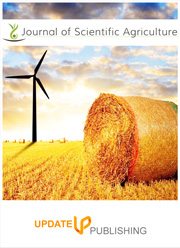Soil quality and health risk assessment of heavy metals in agricultural areas irrigated with wastewater from Kitchener Drain, Nile Delta, Egypt
DOI:
https://doi.org/10.25081/jsa.2017.v1.50Keywords:
Heavy metals, Kitchener, hazard, risk, populationAbstract
Kitchener drain is one of the largest drains in Nile Delta. It discharges water directly into Mediterranean Sea water affecting on the marine environment. Local population uses its water in irrigation and agriculture field along this drain. So it’s important to determine heavy metal content of agricultural soils used this water in irrigation process and assess the hazard and cancer risk on human health living in these areas. Six metals (Fe, Cd, Pb, Ni, Cr and Co) in total and available form were determined in eight geo-referenced soil samples. The order of these metals in soil was as follow; Ni > Cr > Fe > Pb > Cd > Co. The order of these metals in the available form take the sequence of; Fe > Ni > Pb > Cr > Cd > Co. All mean concentrations of metals were exceeding the standard limits of EU, CSQG and AUEC except for cobalt. Mean values of enrichment factors of metals give an indication that the sources of these metals in the environment were from anthropogenic activities. PLI and DC showed considerable degree of contamination in sites 4 & 5. While it showed high degree of contamination in other sites. Hazard quotient from different exposure pathways namely; chemical daily intake (CDI), Dermal contact (DAD) and inhalation (ECinh) and hazard index calculations from metals within different sites were more than one, indicated that there is a chance of non-carcinogenic effects to occur. Also from these pathways, cancer risk (CR) was calculated, which exceed from dermal contact, followed by ingestion and finally from inhalation. Only CR of cobalt showed no risk in the study area when compared with other metals



 .
.